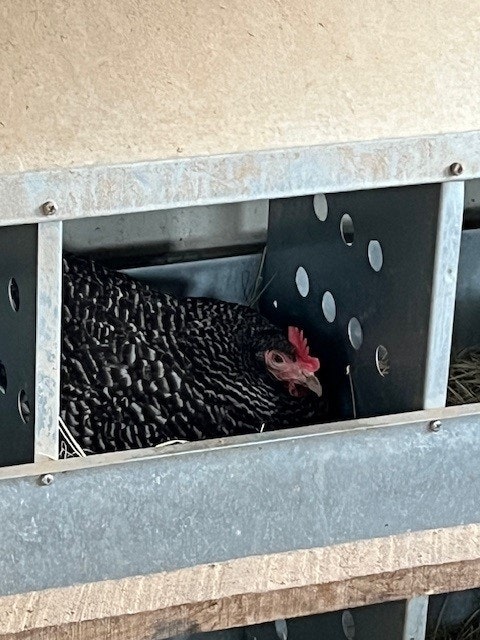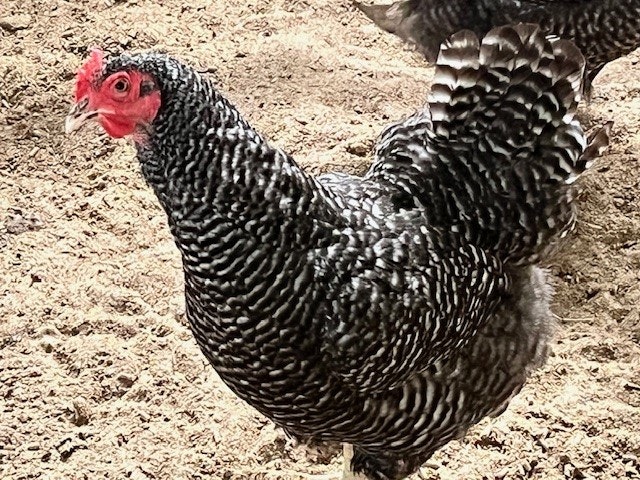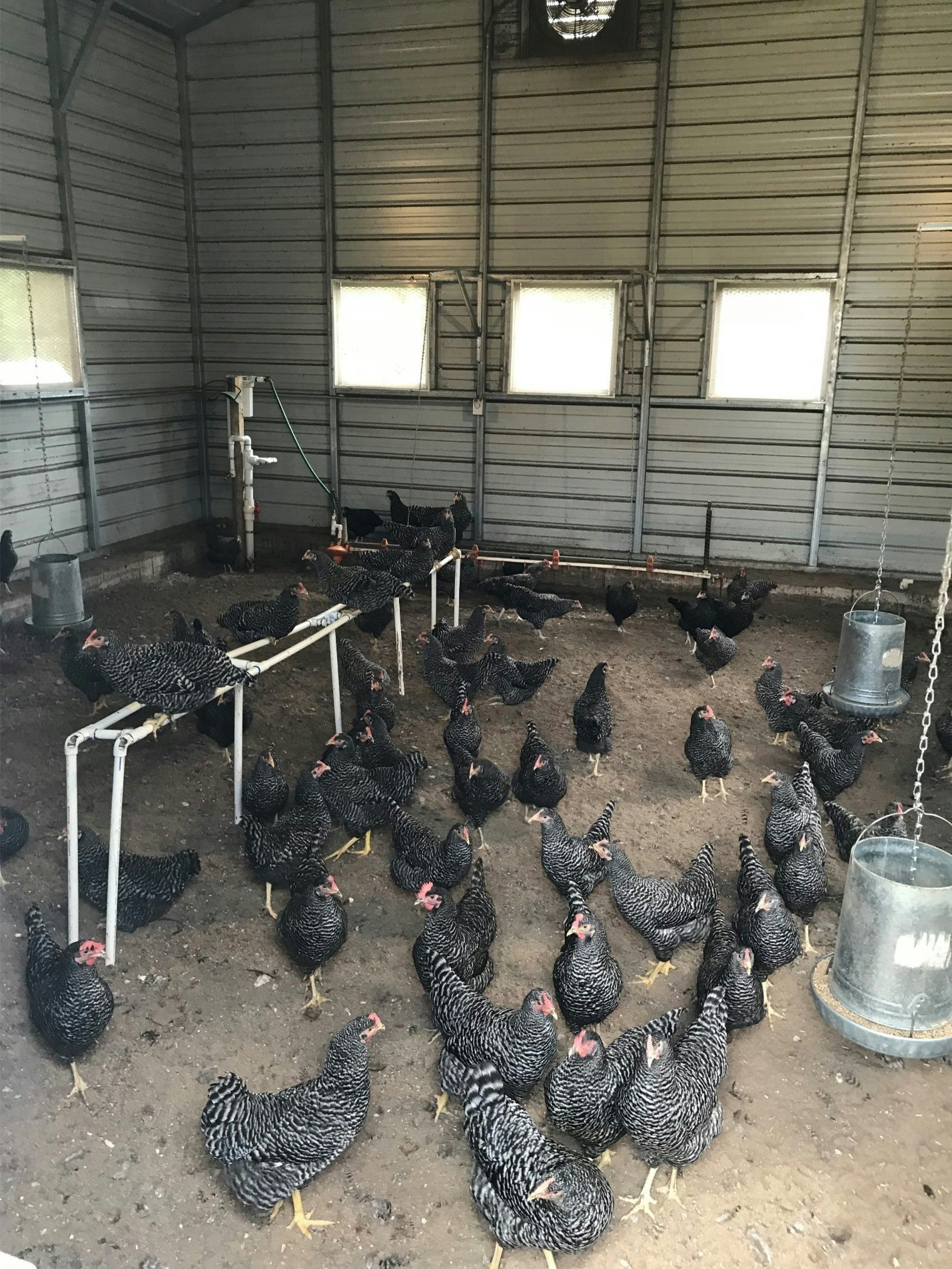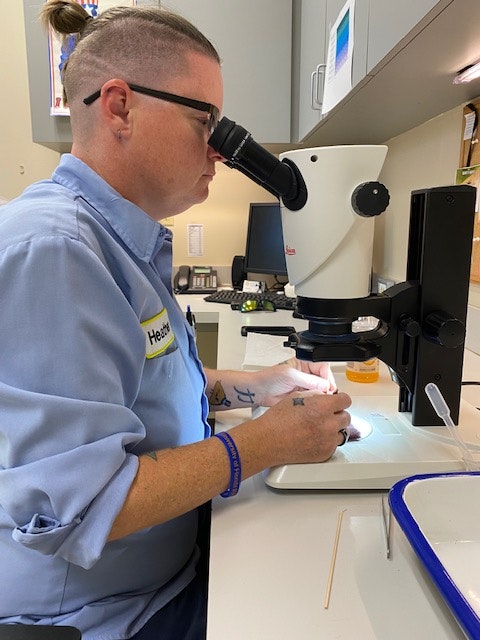Sentinel Program
Arbovirus Detection and Prevention
Indian River Mosquito Control District is committed to prevention disease spread through weekly arbovirus screening with sentinel chickens and understanding vector species populations. The three major arboviruses routinely screened for are West Nile Virus (WNV), St. Louis Encephalitis (SLE), and Eastern Equine Encephalitis (EEE). These three arboviruses share similar disease transmission cycles with mosquitoes acting as “bridge vectors” between infected birds and humans. By examining the blood serum of host birds and the mosquito vector species, the risk of disease transmission can be evaluated.
Sentinel Chickens
Chickens are used as bird hosts throughout the district to screen for WNV, SLE, and EEE. Do not fret, the chickens are not harmed by the arboviruses since they produce high levels of antibodies to fight with making them ideal “sentinels”. The District has eight Sentinel Chicken sites with 6 birds at each site. Three times a week the flocks are checked for food and water and once a week blood is collected for arbovirus screening. After 6 months, the chickens are retired to good homes and replaced with new birds.








- The flocks are inspected a minimum of three times each week.
- Every bird can access fresh water and food 24/7 via their feeder and water system.
- Each house has a perch installed within the coop to allow the chickens to roost at night.
- Every chicken is monitored weekly for viral activity. Although the viruses are harmful to man, they do not cause harm to the chicken. This is why chickens are ideal “sentinels.”
- The District's chickens are in the field for 6 months.
- After 6 months, the chickens are retired to good homes, and new chickens are placed in the field.



Enzyme-Linked Immunosorbent Assay (ELISA) Testing
This season, the District will begin independently screening weekly chicken blood serum collections for West Nile Virus using Enzyme-Linked Immunosorbent Assay (ELISA) testing. The testing works by combining chicken blood serum with antigens of the virus. If antibodies are present in the serum, a color change occurs. The in-house testing for WNV will provide fast results for control practices to be carried out. In addition to in-house testing, weekly blood samples are sent to the state laboratory in Tampa to further screen for SLE and EEE.
Mosquito Ovarian Dissections
An interesting task that the Science Department completes every week is ovary dissections of adult Culex nigripalpus. This is an important practice that assists in determining age of mosquito populations, since older populations have a greater chance of spreading West Nile Virus, St. Louis Encephalitis, and Eastern Equine Encephalitis. Currently, two sites are used to collect females with passive-baited traps for dissections. Young and old females are differentiated by the tightly wound or stretched tracheoles, or respiratory system, that surrounds the ovaries. Tightly wound tracheoles means that the female has never created eggs, or nulliparous, marking her as a younger female. Stretched tracheoles are evidence the female has carried eggs and laid them, or parous, defining her as older and higher risk of being able to spread diseases. Though this method is archaic, it if highly essential in evaluating the disease risk in Indian River County.
Aspirator Collections
Aspirator collections of resting mosquito populations are completed at the same sites used for dissections. By collecting resting populations we can evaluate the proportion of males, green or newly emerged females, non-blood fed and blood fed females, and gravid females to understand a new emergence has just occurred meaning less of a disease risk, or if the population is older with a greater disease risk.
Education on how the District's chickens are an essential tool in the fight against Vector Borne Illness is important. The Chicken's ability to attract mosquitoes and not become ill is crucial to the early detection of diseases like West Nile Virus and St. Louis Encephalitis.
If you have further questions regarding the Sentinel Chicken program Contact the office at 772-562-2393 or the Districts Lab Tech Heather Whitehead at h.whitehead@irmd.org.

